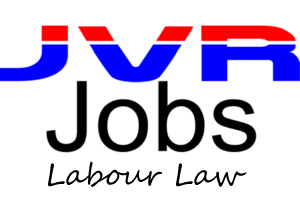Navigating Dispute Resolution in South African Labour Law: CCMA, Labor Court, and Beyond
Disputes are an inevitable part of any workplace, arising from differences in expectations, interpretations, and interactions. In South Africa, the process of resolving these disputes is carefully structured to ensure fairness, transparency, and timely resolution. This article provides a comprehensive understanding of dispute resolution, exploring the role of the Commission for Conciliation, Mediation, and Arbitration (CCMA), the Labor Court, and the step-by-step process that guides the resolution of labour-related conflicts.
The Role of the Commission for Conciliation, Mediation, and Arbitration (CCMA):
- Mediation and Conciliation: The CCMA serves as a neutral third party that assists in mediating and conciliating disputes between employees and employers. Mediation involves a mediator facilitating discussions to find a mutually acceptable solution, while conciliation involves a conciliator suggesting potential resolutions.
- Preventing Litigation: The CCMA’s primary goal is to prevent disputes from escalating to full-blown court cases. It offers an informal, non-adversarial environment for resolving conflicts and reaching mutually agreed-upon solutions.
- Access to Justice: The CCMA provides an accessible avenue for employees and employers to address grievances without the need for expensive legal proceedings. It’s designed to be user-friendly and less intimidating than a formal court setting.
The Role and Function of the Labor Court:
- Specialized Labour Disputes: The Labor Court is a specialized court that deals exclusively with labour-related matters, including disputes arising from unfair dismissals, collective agreements, and labour practices.
- Legal Adjudication: If a dispute cannot be resolved through mediation or conciliation at the CCMA, it may be referred to the Labor Court for adjudication. The court’s decisions are legally binding.
- Appeals and Reviews: Parties dissatisfied with decisions made by the CCMA or other forums can appeal to the Labour Court for a review of the decision, ensuring a thorough and fair examination of the case.
The Dispute Resolution Process:
- Internal Resolution: Before approaching external bodies, employees and employers are encouraged to attempt internal resolution through negotiations, discussions, or grievance procedures within the workplace.
- CCMA or Bargaining Council: If internal resolution fails, the dispute can be referred to the CCMA or an applicable bargaining council. The CCMA will then attempt mediation or conciliation.
- Arbitration or Labor Court: If mediation or conciliation does not result in an agreement, the matter may proceed to arbitration (if agreed upon by both parties) or to the Labor Court for adjudication.
- Resolution and Implementation: Once a resolution is reached, the terms are documented and implemented. If the matter is adjudicated, the decision of the Labor Court is binding.
- Appeals (If Applicable): If either party disagrees with the outcome, they may have the right to appeal or seek a review in accordance with the law.
Benefits of Effective Dispute Resolution:
Effective dispute resolution is a cornerstone of a harmonious workplace. It ensures that conflicts are addressed promptly and fairly, preventing unnecessary disruptions, maintaining productivity, and upholding the rights of both employees and employers. By providing accessible mechanisms for resolving conflicts, South African labour law contributes to the creation of a work environment characterized by justice, cooperation, and mutual respect.
